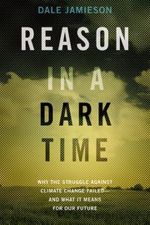 A word to the wise: there’s an election about to happen. Not much sign of climate policy coverage in the newspapers or on television, so in my Daily Blog post this week — An election looms: do I feel lucky? — I provide an entirely superficial but 100% accurate overview of the climate policies of the main parties seeking our votes. (Includes obligatory old film reference.)
A word to the wise: there’s an election about to happen. Not much sign of climate policy coverage in the newspapers or on television, so in my Daily Blog post this week — An election looms: do I feel lucky? — I provide an entirely superficial but 100% accurate overview of the climate policies of the main parties seeking our votes. (Includes obligatory old film reference.)
Category: environment and ecology
Memo to Labour: Calling fossil fuels “transition fuels” doesn’t make the carbon go away
 The New Zealand Labour Party announced their climate change policy on 24 August; the Sunday before last Sunday.
The New Zealand Labour Party announced their climate change policy on 24 August; the Sunday before last Sunday.
At first glance, it sounds refreshingly like a policy that takes anthropogenic global warming seriously. From the announcement:
A Labour Government will put in place a comprehensive climate change strategy focusing on both mitigation and adaptation, establish an independent Climate Commission and implement carbon budgeting, says Labour Climate Change spokesperson Moana Mackey.
“This is about future-proofing our economy. Making the transition to a low-carbon clean technology economy is not a ‘nice to have’ as the current Government would have us believe. It is a transition we must make and the sooner we begin, the easier that transition will be.”
How did the media respond? Well they ignored it. I haven’t seen any reporting of Labour’s climate change policy in the Herald, or Stuff/Fairfax, or Radio NZ or TV1 or TV3. I only stumbled onto it via Scoop a week after the release.
Like the 2011 election, the issue of climate change has been notable for it’s absence (the snake swallowing the elephant in the room).
However, some climate change focused NGOs responded positively to Labour’s policy. Simon Terry at the Sustainability Council said a carbon budget was the single most important reform. Generation Zero and the Iwi Leaders Group and forest owners welcomed the policy. The mainstream media of course also ignored these NGO views.
However, before I get into the detail of Labour’s climate change policy (a topic for another post), it’s important to ask “are the dots connected with Labour’s energy policy?” Unfortunately, the dots are not connected and the energy policy is 180 degrees contrary to the concept of a carbon budget.
The great climate voter debate
[youtube=https://www.youtube.com/watch?v=P9k3lnBfliU&w=480]
Last week’s Great Climate Voter Debate is a must view for anyone wanting to understand NZ’s mainstream political parties stance on policies to address carbon emissions and climate change. Moderated by TV3’s Samantha Hayes, the debate features climate change minister Tim Groser, Labour’s deputy leader David Parker, Greens co-leader Russel Norman, NZ First’s deputy leader Tracey Martin, John Minto from Internet-Mana and Nancy Tuaine from the Maori Party. The ACT Party and Conservatives couldn’t be bothered to send representatives — no surprises there.
It’s an excellent discussion, covering all the bases. Every NZ voter should take the time — only two hours — to watch it through.
Oops… (normal service will be resumed as soon as possible)
There will be a brief intermission while I sort out the problem with the comment system. I (stupidly, without checking, because nothing ever goes wrong when you’re on the bleeding edge of an upgrade, does it?) upgraded Hot Topic’s WordPress underpinnings to the latest version — 4.0 — only to find that now comments don’t display properly. I’ve tracked it down to a problem with the theme (the code that makes HT look the way it does), and I now have to work out how to fiddle with things to get them back. There may be a marked change in the site’s appearance…
Reason in a Dark Time
 Dale Jamieson is a philosopher long acquainted with the work of climate scientists. His recently published book was begun 25 years ago, “an avocation that became an obsession”. He used to joke when asked why the book wasn’t appearing that he was waiting to see how the story ended. Then it dawned on him after the failed 2009 Copenhagen conference that there was no ending, and certainly not a happy one. The continuing journey is largely a matter of salvaging what we can from the wreckage. The book’s title sets the stark picture: Reason in a Dark Time. Why the Struggle Against Climate Change Failed – and What it Means for Our Future.
Dale Jamieson is a philosopher long acquainted with the work of climate scientists. His recently published book was begun 25 years ago, “an avocation that became an obsession”. He used to joke when asked why the book wasn’t appearing that he was waiting to see how the story ended. Then it dawned on him after the failed 2009 Copenhagen conference that there was no ending, and certainly not a happy one. The continuing journey is largely a matter of salvaging what we can from the wreckage. The book’s title sets the stark picture: Reason in a Dark Time. Why the Struggle Against Climate Change Failed – and What it Means for Our Future.
Not surprisingly with such a title the book is not a call to action but rather an invitation to understand our failure and to think about what we might learn from it and how best live in the changed world we are creating.
Jamieson proposes a variety of reasons for our failure. Scientific ignorance is one. He recalls British scientist and novelist C.P. Snow’s famous “two cultures” claim in 1956 that the British political and cultural elite, educated in the humanities, was quite ignorant and even contemptuous of science. The “two cultures” are alive and well in the United States today, including among the political elites. In particular the weight of peer-reviewed science is often not grasped. Jamieson presents an illuminating explanation of the process of peer review which enables the incremental advance of solid science. It is scientific ignorance which has allowed climate change denial to find a foothold, aided by powerful corporations anxious to prevent or delay action which might affect their profitability.
